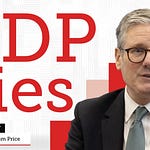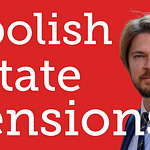In this Institute of Economic Affairs Podcast, Daniel Freeman interviews Lyman Stone, demographer and senior fellow at the Institute of Family Studies. The conversation explores the global decline in birth rates, examining why people across the developed world are having fewer children than they desire. Stone explains how skills-biased technical change, delayed marriage, and reduced in-person socialising have contributed to fertility rates falling below replacement levels, with countries like South Korea now experiencing particularly dramatic declines.
Stone presents compelling evidence that people genuinely want more children than they're having, citing longitudinal survey data and studies of IVF patients that show undershooting fertility goals leads to decreased happiness and higher rates of depression. He argues this represents a genuine welfare loss rather than simply changing preferences. The discussion covers various policy responses, including cash transfers for families, which Stone demonstrates can effectively increase birth rates at a cost of roughly $200-400,000 per marginal child - a figure he argues represents good value given the economic benefits children bring to society.
The interview concludes with an examination of non-fiscal policy solutions that can help close the fertility gap. Stone discusses research showing how economic freedom, particularly labour market flexibility, strongly correlates with higher fertility rates. He also explores how regulatory reforms around childcare, housing policy, and even seemingly minor issues like car seat requirements can collectively impact family formation. Stone advocates for deregulation in areas like childminding and emphasises that while cash transfers are effective, removing regulatory barriers offers a cost-effective complement to fiscal policy in supporting families who want more children.
The Institute of Economic Affairs is an educational charity, it does not endorse or give support for any political party in the UK or elsewhere. Our mission is to improve understanding of the fundamental institutions of a free society by analysing and expounding the role of markets in solving economic and social problems.













